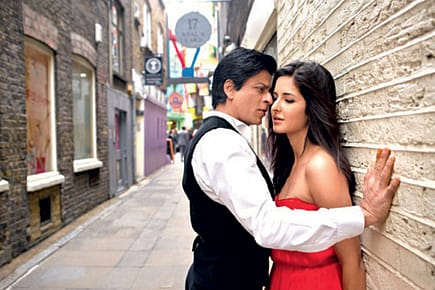Jab Tak Hai Jaan

The most personal of Yash Chopra's films, this is an elegy to love
The interesting thing is that though Yash Chopra is known to be a romantic filmmaker, Jab Tak Hai Jaan is not a romantic movie. It is elegiac. It's about yearning for a past love; not for a specific affair, but a lament on the abstract concept of loss that arrives at the end of a relationship. It sees the termination of love as a kind of death.
In this sense, the movie is quantifiably more intense than Chopra's previous films. It is slow, sad, ruminative, thoughtful. Some of the plot devices, like the one about Samar (Shah Rukh Khan) and his 'retrograde amnesia' after his second accident that wipes out 10 years of his life, would be corny in any another film. But by the time of this event in Jab Tak Hai Jaan, the movie has set a tone for an elegy to love, and what we see is an accident foretold.
Both accidents are uncannily alike—Samar's head injury in exactly the same place, the two women observing it from the same positions and angles. It appears almost like wish fulfillment. Of all Yash Chopra films, this is the most personal. He slows down the narrative to establish a dialogue with the audience, he lingers on the visuals of his actors as if never wanting to let go.
Sometimes, during the middle of the film, the characters seem to go into a daydream while they speak, and, in truth, the director loses his audience here. The conversations between Meera (Katrina Kaif) and Akira (Anushka Sharma), as they intersect Samar's two lives in London and India, are quite meaningless in the context of the narrative. But they are poignant as discussions on the nature of love, loss and death.
Imran Khan: Pakistan’s Prisoner
27 Feb 2026 - Vol 04 | Issue 60
The descent and despair of Imran Khan
This is not a retro film from the 1980s. It is a deeply felt cinematic perspective from 80 years of living.
